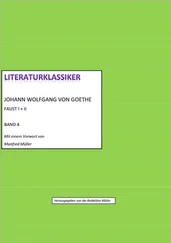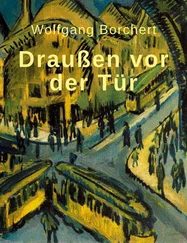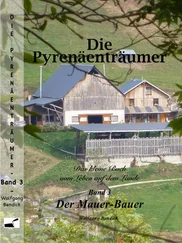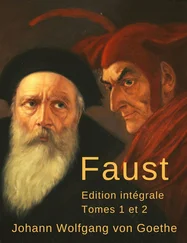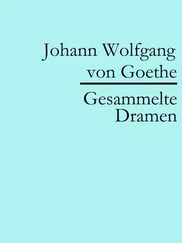The problem for W. was that he couldn’t remember exactly — that possibly he’d been lagging behind the times a year longer than he’d thought. . how else could he know there was no more outdoor service on Frankfurter Allee? — Ultimately it didn’t matter, the bad vibes hadn’t let up, over the past year or the past two years. . and now, this spring, in Feuerbach’s absence, they were even worse. You couldn’t put your finger on it (and the Western journalists, who came more and more often to check that all was well in the Scene, didn’t notice it at all, on the contrary, they seemed electrified by an ongoing exhilaration, tossing Russian words about and beaming like Indian wise men on the threshold of nirvana). . the bad vibes were really only something you could feel, assuming that you wanted to. They were like an additive to the air people breathed, making them gloomy and depressive; W. had thought he sensed them even in the still-grey early spring, late February, early March, though the window of the cafe. But perhaps they — Feuerbach and he — were still feeling the shock of 17 January, when the grassroots groups had disrupted the Liebknecht-Luxemburg Demonstration and caused ‘riots and provocations’ (the official statement!) on Frankfurter Allee. . At the time between one and two hundred people had been nabbed; by now they were all at large again. . and since early April everyone had been claiming that a new production of the drama was planned for 1 May. . and so it was a safe bet that Feuerbach would be back in the city on 30 April at the latest.
No, the bad vibes weren’t visible : it was business as usual, the crowds emerging from the U-Bahn tunnels or vanishing into them had lost none of their haste and bustle, everyone wore their usual faces and greeted one another as emphatically as ever. . on Frankfurter Allee the distances were large, and this was inimical to the typical Berlin understatement. . and people talked just as much or as little, and, on Frankfurter Allee, in all sorts of dialects.
Frankfurter Allee was not the Scene, and it was not Alexander-platz, dominated by the average folks and the tourists; by the time you found out anything on Frankfurter’s eastern end, things were probably already going up in flames all over the place. And yet it seemed to him that the floods of humanity coming from the underpasses had suddenly thinned out. . it wasn’t noticeable yet, but their squadrons were less compact, fewer of them were spat out from the U-Bahns in the Magdalenenstrasse Station; even during the afternoon rush hour, when the trains came more frequently, there were fewer pedestrians walking down the boulevard and past the gigantic complex of the Ministry . — Even then W. had started taking long trips with public transportation in an effort to fathom this feeling for which feeling might not even be the word. . and which possibly was nothing but a mood of his own. He almost always came late when there was a reading somewhere in the Scene, a stand-around party (five hours long, not good for legs you had to earn a living with), a costume affair (theatre with gender-swapped roles — very interesting!) or a scattering of shredded paper (described as a performance — with literary pretensions). . he arrived too late — missing the male protagonist’s bare breasts once again! — because he’d ridden a few stations too far so as to wander along several streets which were still unfamiliar to him (often, later, through the sombre neighbourhoods near the Storkower Strasse Station). . and as lifeless as always; it was hard to believe how lifeless some parts of Berlin were on inclement evenings. And when he did he sensed, again and again, that a vague odour of futility had crept over the city. . And the only interesting things in this city, he thought, are playing out behind the doors of the flats: the Western TV and radio channels were playing. And they were playing because people were looking for the country they lived in. . but this country was hardly mentioned in the news and the commentaries. . As if we’d already been gobbled up! said Feuerbach. — Things in Poland and Hungary, and especially the Soviet Union, played a far greater role. . Finally our people are taking an interest in the Russians! said Feuerbach. — Even China had suddenly gained importance. . W. had the impression that the country he lived in had been forgotten, and quite probably this impression was rampant among the citizens of the Republic in general. The Republic had sunk into an animated sort of deathly silence, against which any Eurasian earthquake was more stirring; there was no earthquake here. Suddenly the whole country’s state was best described by a strange word: absence. . it was as though no one had had to invent the term; all at once what it described was omnipresent. — Meanwhile the buzzwords of the day were of foreign origin, hailing from Moscow: glasnost or perestroika . For the first time the little German republic seemed to turn a deaf ear to Moscow; here it was the same old, same old, or no, it got older by the day — and the old men in the government seemed never to have heard those words before.
He would have liked then to ask Feuerbach about the two Russian words; they had never discussed them, apart from a few vague allusions. For half the month of May the first lieutenant complained about the profiles which W. was withholding from him. . W. couldn’t imagine what the superfluous stuff was needed for. — Much later he recalled that Feuerbach had mentioned a different division, evidently another section was putting him under pressure.—W. had kept putting him off, claiming he had to touch up the drafts, fill in the gaps, and Feuerbach reacted aggressively, threatening after several days of this to come to W.’s flat and tear the scraps from his typewriter.
On one of those aggressive days he waited for the first lieutenant in his flat until eight in the evening, windows wide open (it was mid-May, and chilly) in the hope of hearing the sound of the front door from up on the fifth floor. . and then he really did hear the door’s cumbersome leaf scraping across the tiles and falling to. Actually he’d finished the dossiers, apart from a few insignificant things, and he didn’t quite understand himself what he was doing. — He kept thinking about the description of a young woman which had turned out somewhat oddly. . which perhaps hadn’t ended up being entirely objective. The page was in the second bundle which he had been carrying around in his pocket back on the eve of 1 May. He’d been relieved when the handoff miscarried; after that he had tried to rewrite the passages about the young woman. . they were a failure yet again, now they seemed lustreless, lacking esprit . . they were missing something, he didn’t know what. . Feuerbach would have sniffed it out at once! — Then he’d reread the first version, which had turned out. . he hated to use the word. . too poetic. Yes, the woman was portrayed too sympathetically, without expertise, Feuerbach would have said, now the word intimate occurred to him. A certain something. . no, an uncertain something about this woman was a phenomenon (at least in his dossier), and discord always brewed in unexpected quarters whenever the word phenomenon cropped up.—W. slipped the relevant page from the stack of paper, rolled it up, put a rubber band around it, placed it in his desk drawer and pushed everything else in the drawer up against it and in front of it: pencils, rolls of adhesive tape, packs of cigarettes, cutlery, wadded-up coffee filters; then he went to a pub. — On his return he immediately suspected someone had been in the flat. . the light was burning when he came in, no, he’d already seen it burning from the street. The dossiers on the desk looked very jumbled, and possibly some were missing. . he removed the thin roll of paper from the desk drawer and took it down to the cellar.
Читать дальше





